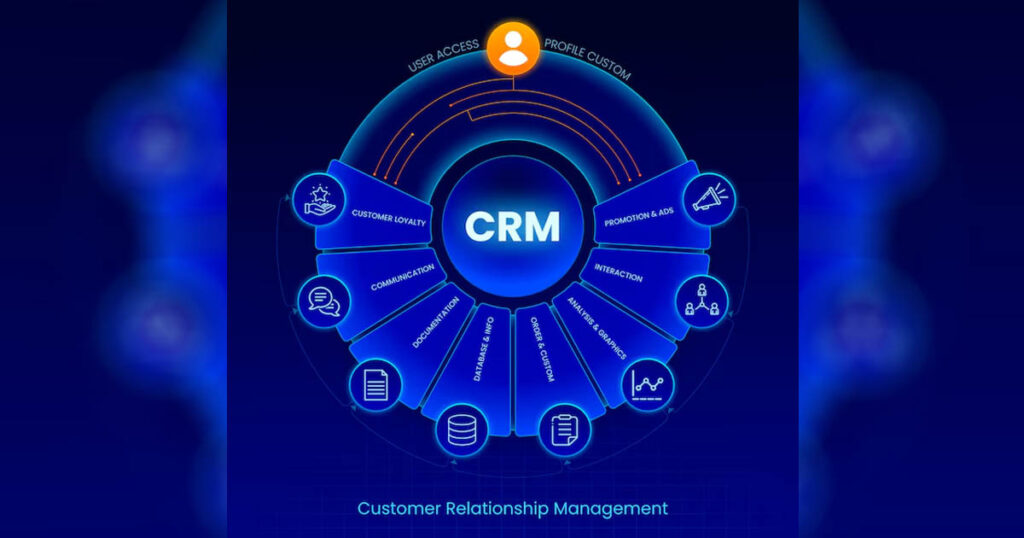In the ever-evolving landscape of business management, selecting the right CRM (Customer Relationship Management) solution stands as a pivotal decision for companies seeking to streamline their operations and enhance customer interactions. With a myriad of options available in the market, each boasting unique features and functionalities, the task of choosing the optimal CRM can be daunting. However, armed with the right knowledge and understanding of your business needs, this endeavor can transform into a strategic advantage.
Understanding Your Business Needs
Before delving into the sea of CRM solutions, it’s imperative to conduct a comprehensive assessment of your business requirements. Identify the specific pain points within your current processes, whether it’s inefficient lead management, disjointed communication channels, or inadequate customer support functionalities. By pinpointing these areas of improvement, you lay the groundwork for selecting a CRM that not only addresses your immediate needs but also aligns with your long-term objectives.
Defining Key Features and Functionality
Once you’ve identified your business needs, the next step is to outline the key features and functionalities essential for your operations. Consider aspects such as lead management, contact organization, sales forecasting, marketing automation, and customer service capabilities. Additionally, evaluate whether you require industry-specific features tailored to your niche, such as healthcare compliance for medical practices or inventory management for retail businesses. By defining these requirements upfront, you narrow down your options and ensure that the chosen CRM fulfills your core business objectives.
Assessing Scalability and Flexibility
In a dynamic business environment, scalability and flexibility are paramount. As your business grows and evolves, your CRM solution should seamlessly adapt to accommodate changing needs and expanding operations. Therefore, evaluate the scalability of each CRM platform, examining factors such as user capacity, data storage limits, and customization capabilities. Furthermore, assess the platform’s integration capabilities with other essential tools and applications used within your organization. A flexible and scalable CRM empowers your business to scale efficiently without outgrowing its foundational systems.
Analyzing User Experience and Interface
Usability plays a significant role in the successful adoption of any software solution. A user-friendly interface and intuitive navigation streamline processes, enhance productivity, and minimize the learning curve for your team members. When evaluating CRM options, prioritize platforms that offer a clean and intuitive user experience, with customizable dashboards and streamlined workflows. Conduct user trials or demos to gauge the ease of use and functionality from an end-user perspective, ensuring that the chosen CRM enhances efficiency rather than creating barriers.
Considering Integration and Compatibility
In today’s interconnected digital ecosystem, seamless integration with existing tools and software is essential for optimizing productivity and data flow. Evaluate the compatibility of each CRM solution with your current tech stack, including email clients, marketing automation platforms, accounting software, and project management tools. Additionally, consider future integrations you may require as your business expands. A CRM that offers robust integration capabilities and supports popular APIs ensures smooth data synchronization and workflow automation across your entire business ecosystem.
Budget and Total Cost of Ownership
While investing in a CRM is a strategic decision with long-term benefits, it’s essential to consider the associated costs and budget constraints. Evaluate the pricing models offered by different CRM providers, whether it’s subscription-based pricing, tiered plans, or customizable enterprise solutions. Factor in not only the initial implementation costs but also ongoing maintenance, training, and support fees. Conduct a comprehensive analysis of the total cost of ownership over the projected lifespan of the CRM solution, weighing the benefits against the investment to ensure a favorable ROI (Return on Investment).
Seeking Vendor Reputation and Support
The reputation and reliability of the CRM vendor are critical factors that influence the success of your implementation. Research the vendor’s track record, customer reviews, and industry reputation to gauge their reliability and commitment to customer satisfaction. Additionally, inquire about the level of customer support and training provided, as ongoing assistance is crucial for resolving issues and maximizing the value of your investment. Choose a vendor with a proven track record of delivering quality support and fostering long-term partnerships with their clients.
Conclusion
In conclusion, selecting the right CRM for your business requires careful consideration of your unique needs, key features, scalability, user experience, integration capabilities, budget constraints, and vendor reputation. By following a systematic approach and conducting thorough research, you can identify a CRM solution that not only addresses your current challenges but also empowers your business to thrive in the digital age. Remember, the right CRM is more than just a software solution—it’s a strategic asset that drives growth, fosters customer relationships, and propels your business towards success.


